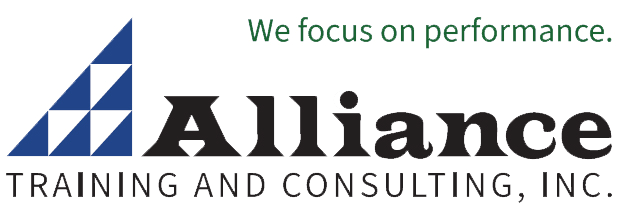The 6-Step Employee Development Plan
By: Dale Mask
Developing an employee means enhancing their skills for their current job while also preparing them for future responsibilities and opportunities. As a manager, this isn't optional - it's a core part of your role. In face many organizations now hold managers accountable for employee growth, making development a key factor in performance evaluations. (Not surprisingly, the abilities needed to develop others come from strong leadership, management, and supervisory skills.)
This six-step employee development plan is designed to help you, your team, and your department reach your full potential.
One of the best times to initiate the developmental process is during the performance review. Provide employees with reflection questions ahead of time so they can prepare thoughtful responses. Their insights will guide a more meaningful and productive conversation.
Provide Development Opportunities
There is a vast array of things you can do to help the employee develop and every employee is different. Here is a list of some developmental approaches you can consider.
-
Training - Training is obviously first on the list. Often, training needs are simply defined by looking at the employee’s performance or by understanding their experience or lack of experience with the specific job tasks.
-
Peer Coaching - Employees coach other individuals on their jobs. The benefits are two-fold. First, the employees develop skills in other areas and can fill in for their counterpart if that person is on vacation or out sick. Also, in the process of teaching another person, the teacher themselves becomes more proficient.
-
Job Design Changes - Here, the employee defines all aspects of their job and makes suggestions as to how the job might be redesigned to enhance proficiency. You may be surprised by their creativity and superior ideas. Even though you may not be able to totally revamp a job, the employee understands the job better and you begin to recognize some of their concerns.
-
Representing the Department - Have the employee represent you, the team, or the department at an important meeting. Have them report back the proceedings to you and/or the team. In the process, the employee has a better understanding of how the team, the department, and their job fit into the big picture of the organization.
-
Delegate Special Projects - Make certain the project challenges the employee. The project must be seen as meaningful. Also, make sure the employee views the project as a reward for good work in other areas of their job. In doing so, the assignment becomes a motivating experience and not just more work.
-
Assist the Boss - Assign an employee to assist your boss or another executive on a special assignment where the employee will be exposed to new business perspectives of the organization’s business.
Monitor Progress
Observe how the employee is doing. Schedule to meet at least once per quarter to discuss how things are going. Ask questions; review any quantity and quality measures that are relevant. Give ongoing feedback on what the individual is doing well and what they need to be doing differently. Feedback is critical to the success of the developmental process. If you do not follow up with them, you are essentially telling the employee the developmental process is not all that important to you. If it is not important to you, how can you expect the employee to take it seriously?
Create Confidence
Let them know you are always available. Give the employee the encouragement and support needed to feel confident in his or her ability to succeed. When things do not go as well as planned, focus on what went right. You are asking the person to go beyond their current level so take it one step at a time. Sometimes we must take smaller steps to ensure a successful outcome.
The ultimate success in developing the employee depends on the employee themselves. However, the success of the developmental process depends on the manager. Follow these guidelines to ensure success in developing your people.
© 2025 Alliance Training and Consulting, Inc.
View our Employee Development Courses
